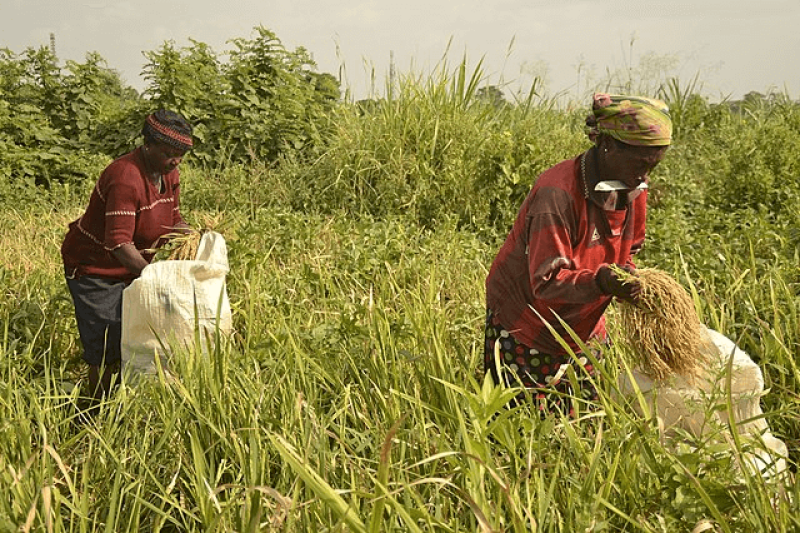A research team has used genome editing to produce a rice variety resistant to yellow mottle virus, which is responsible for high crop losses in sub-Saharan Africa, and which particularly affects small-scale farmers.
The development of the resistant variety, described in a new paper in the journal Plant Biotechnology, is just the first step towards generating resistant, locally adapted varieties for food producers in Africa.
Rice yellow mottle virus (RYMV) is spread by mammals and insects and direct leaf-to-leaf contact. In Africa, the majority of farm plots are less than one hectare in size, and between 10-100% of the rice harvests are regularly lost to the virus.
“The only real protection is to develop rice varieties that possess a resistance gene against RYMV, which would make the plant invulnerable,” says Dr Yugander Arra of Heinrich Heine University Düsseldorf (HHU), Germany, and lead author of the study.
Their results confirm that disrupting the RYMVR gene in the Kitaake variety, a Japonica rice variety, confers resistance without penalising its high yield, at least under greenhouse conditions.
“The next step will be to edit [the mutation] in elite varieties that are better adapted to rice culture in rainfed lowland and irrigated areas of Africa, where rice production is particularly affected by RYMV disease,” the authors write.































